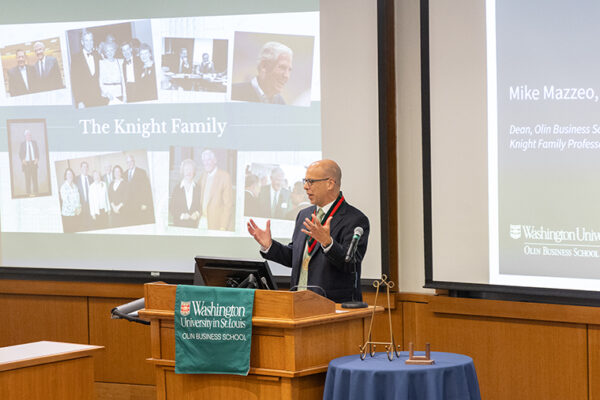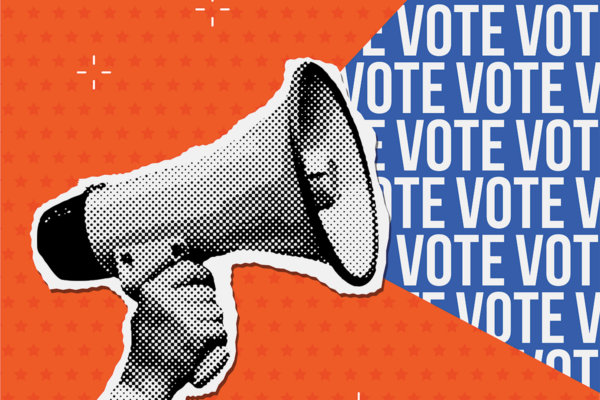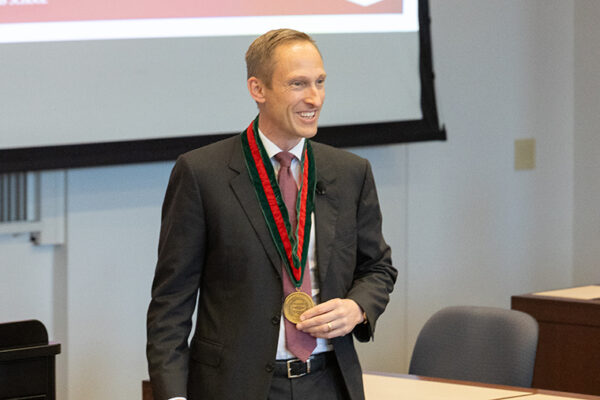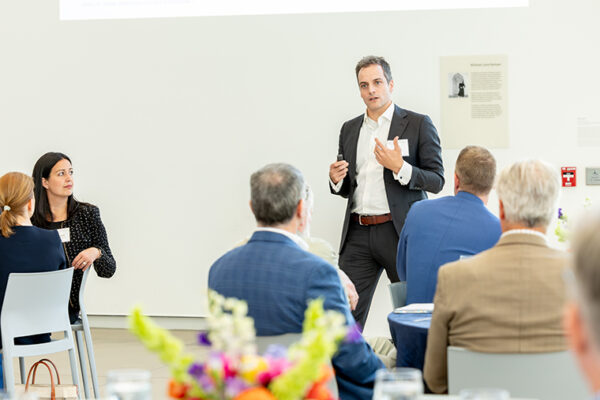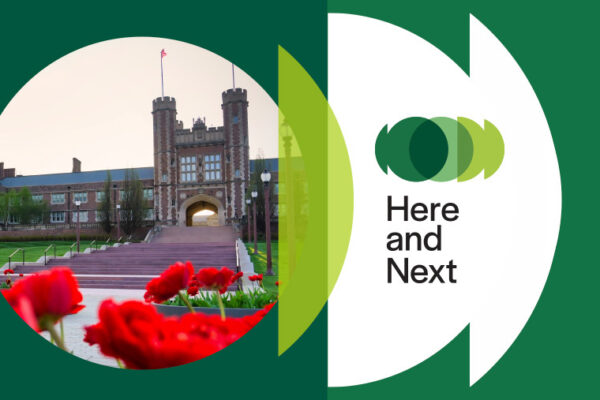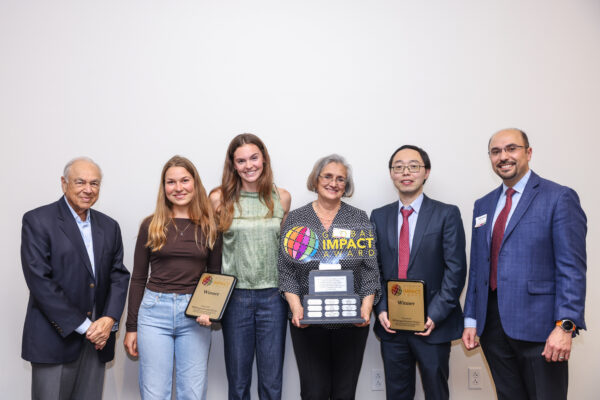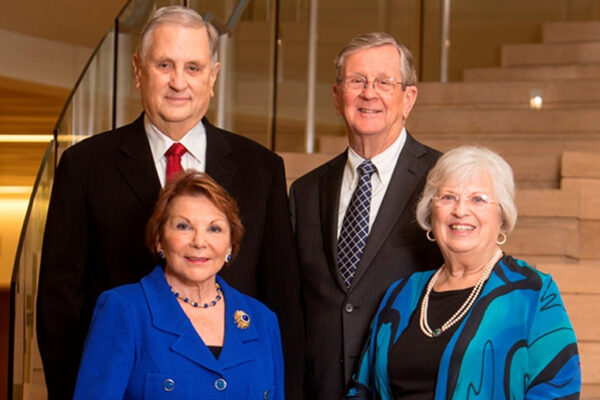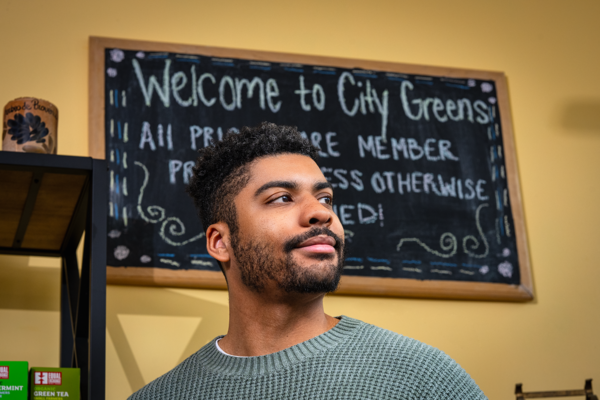Mazzeo installed as inaugural Knight Family Professor
Mike Mazzeo, dean of Olin Business School at Washington University in St. Louis, has been installed as the inaugural Knight Family Professor. The endowed position was made possible by the Knight family, longtime ardent supporters of the Olin, WashU and St. Louis communities.
Dennis Zhang
Olin Business School’s Dennis Zhang says online platform design is improved by considering human decision-making alongside information algorithms.
The motherhood entrepreneurs
WashU alumnae are founding companies with moms in mind, offering solutions for the raw, unfiltered realities of pregnancy and infant care.
Reframing voting as ‘duty to others’ key to increasing engagement, turnout
New research by Hannah Birnbaum, assistant professor of organizational behavior at Olin Business School, suggests that when people view voting as a duty to others — rather than to themselves — they’re more likely to feel an obligation to vote.
Pierce installed as Beverly and James Hance Professor of Organization and Strategy
Lamar Pierce, an Olin Business School expert on ethics, motivation and incentives in organizations, was installed as the Beverly and James Hance Professor of Organization and Strategy at Washington University.
WashU’s ‘philanthropy incubator’ helps donors maximize giving impact
A new program at Washington University in St. Louis’ Olin Business School is working with top charitable donors to help them achieve the biggest impact through their giving.
Knight appointed executive director of George and Carol Bauer Leaders Academy
Andrew Knight, vice dean for education and globalization and professor of organizational behavior at Olin Business School, has been named executive director of WashU’s George and Carol Bauer Leaders Academy and senior advisor to the chancellor for leadership, effective July 1, announced Chancellor Andrew D. Martin. Knight succeeds Kurt Dirks, who has accepted an appointment at the University of Utah.
Entrepreneurs and innovators honored
The Skandalaris Center for Interdisciplinary Innovation and Entrepreneurship awarded more than $125,000 in funding to WashU startups at its spring awards ceremony.
Olin Business School honors 2024 distinguished alumni
Olin Business School honored four Koch family members as the 2024 Dean’s Medalists at the school’s annual Distinguished Alumni Awards dinner April 4.
Class Acts: Franklin Taylor
As an Olin Business School MBA student, Franklin Taylor collaborated with mentors and fellow students to build a startup company that aims to help grocery stores alleviate food waste and increase profitability.
View More Stories
